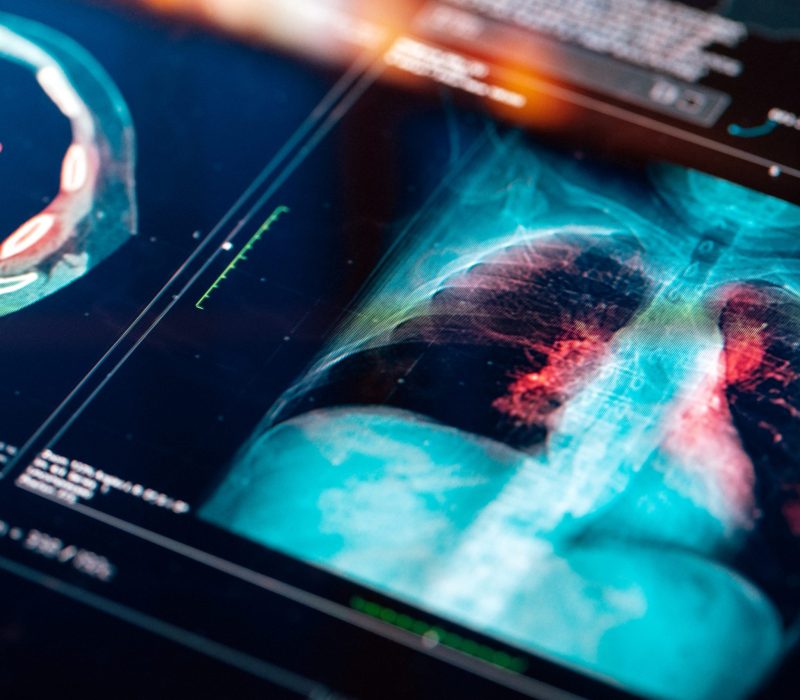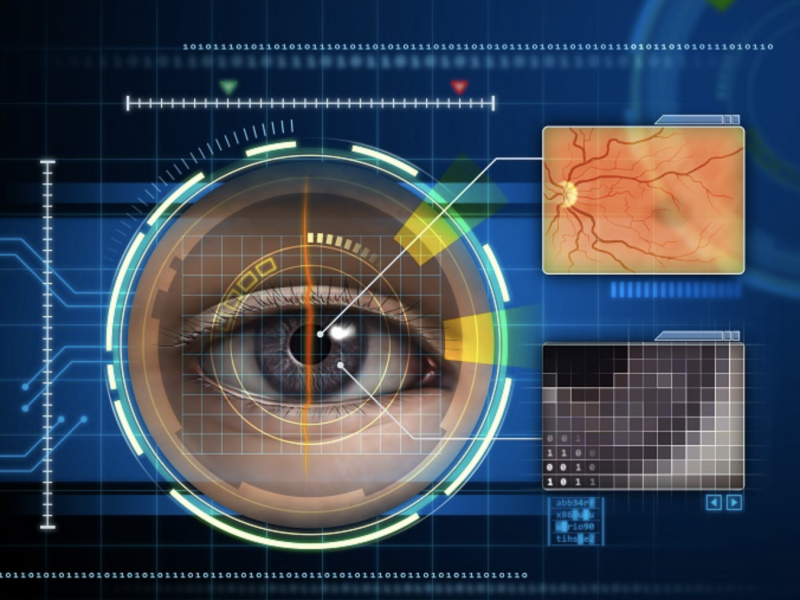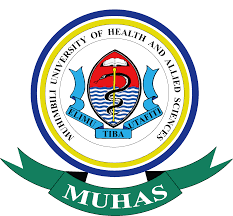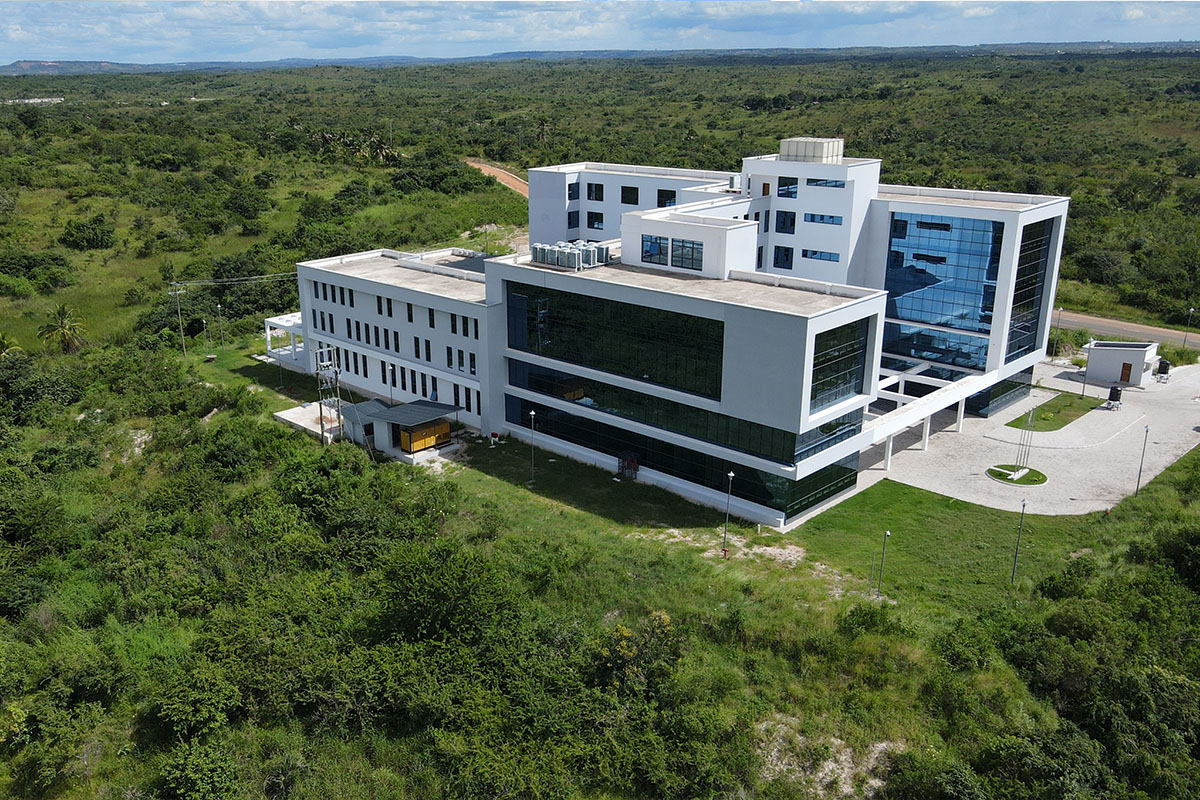WHAT WE DO
ETH LAB
ETH LABORATORY
The MUHAS Emerging Technologies for Health (ETH) research and development laboratory is a facility that operates under the Biomedical Engineering unit, Physiology Department at MUHAS School of biomedical sciences. The lab is focus on research and development of healthcare solutions by using emerging technologies with the aim of improving patient care and outcomes. These technologies include Artificial Intelligence, Virtual reality, Augmented Reality, Blockchain etc.
The lab also serves as a learning and training environment in biomedical engineering and related fields by providing short trainings, workshops and mentorships.
MISSION
To research and develop solutions for healthcare by using emerging technologies. Including Artificial Intelligence, Virtual reality, Augmented reality, Blockchain

VISION
Leading research and development laboratory for healthcare technologies in the country, region and on the continent.
Researchers
Three members of the lab have PhD’s in Artificial Intelligence, Signal Processing and Mathematical modelling obtained from the UK, Norway and Japan. Currently other three members are pursuing their PhDs in the same fields in China and German.
The other four members have masters and degrees in Biomedical engineering, with other members having degrees in prosthetic and Orthotic.


Some of the researchers of this lab have won different awards and competitions including “The International Innovation Competition for Automation and UAV 2014”, a competition held in China and IEEE Outstanding Young Investigator Research Visit award. Researchers in this lab have published several papers in peer-reviewed journals including Nature and IEEE. Some of the published works have been featured in global media houses including Forbes and the BBC.
Here is the list of publications that researchers from our Lab have either led or participated in.


Development of an artificial intelligence-based application for predicting chronic respiratory disease cases for mitigating climate change impact on air quality in Tanzania. (Acronym:AI4PreCRD)
Chronic respiratory diseases are among the non-communicable diseases (NCDs) that contribute more to morbidity and mortality than any other disease in low- and middle-income countries (LMICs) including Tanzania. Although there is a significant correlation between respiratory diseases and air quality as an impact of climate change, most of the LMICs don’t have real-time air quality monitoring tools. In this project, we aim to plant air quality sensors in two major cities in Tanzania. The general objective of this project is to develop AI-based tools for the prediction of cases of respiratory diseases for climate change mitigation and its impact on air quality in Tanzania.
Funder: COSTECH
Collaborating institutions: University of Dar es salaam (UDSM-Lead), Muhimbili University of Health and Allied Sciences (MUHAS)
Artificial Intelligence in detection of Diabetic retinopathy
The aim of this project is to develop an AI algorithm for the detection of diabetic retinopathy using retinal images, led by the Emerging Technologies for Health (ETH) lab at Muhimbili University of Health and Allied Sciences (MUHAS). Leveraging the clinical expertise and imaging data from the Kilimanjaro Christian Medical Centre (KCMC) Eye Department, the ETH lab will build and train AI models specifically tailored to the Tanzanian diabetic population. The project will establish a curated database of retinal images linked with clinical data to support high-quality AI model development. A key focus will be creating an African-led solution that addresses local disease patterns and improves diabetic eye screening. The AI model will be prospectively validated through a longitudinal diabetic cohort study. This initiative aims to strengthen local capacity and contribute to equitable AI innovation in healthcare.
Funder: Velux Stiftung
Collaborators: London School of Hygiene, KCMC


Artificial intelligence for early detection of breast cancer
Following cervical cancer, breast cancer is the second most common cancer and the second leading cause of cancer mortality among women in Tanzania, this is largely due the absence of screening programs and limited access to diagnosis. In this project, we are creating Artificial Intelligence based breast cancer diagnostic system using breast ultrasound and mammogram.
Funders:
• Google
• IDRC Through Villgro Africa
• SIDA through MUHAS


Artificial Intelligence for screening of TB among people living with HIV
Tuberculosis (TB) is a serious and potentially life-threatening disease that can be particularly challenging for people living with human immunodeficiency virus (HIV). People with HIV are at a higher risk of developing TB, and TB can also accelerate the progression of HIV. Therefore, screening and treatment for TB are critical components of care for people living with HIV. At ETH, we are developing an Artificial Intelligence based tool for screening of TB among people living with HIV.
Funder:
IDRC through HASH (Hub for Artificial Intelligence in Maternal, Sexual and Reproductive Health)
Artificial Intelligence in the early detection of Dilated Cardiomyopathy
Cardiovascular disease (CVD) is a leading cause of death globally, with dilated cardiomyopathy (DCM) being one of the most common types. DCM affects adults aged 20 to 60 and leads to heart failure due to the heart’s inability to supply enough blood. It can also cause irregular heartbeats, blood clots, or sudden death. Currently, DCM is diagnosed using echocardiograms, but it is difficult to distinguish primary idiopathic/non-ischemic DCM from ischemic or cardiomyopathy due to hypertensive heart disease or diabetic or valvular disease, as all present with a dilated heart.
To improve early detection, the Emerging Technologies for Health (ETH) and Jakaya Kikwete Cardiac Institute (JKCI) are collaborating to collect and annotate DCM echocardiography images and train an AI model for early detection of DCM. The model will classify images related to DCM and detect its associated cardiac features in near real-time. The final product will be deployed in a mini supercomputer for local application, considering internet challenges in Tanzania. The intellectual property will belong to both participating institutes, and research findings will be disseminated through paper publications, conferences, and workshops with stakeholders. This 18-month project aims to improve early detection and treatment of DCM.
Funder: COSTECH – Commission of Science and Technology


Artificial intelligence for Rabies screening and early prediction of its outbreak
In this project, we are using artificial intelligence (AI) to detect rabies epidemics which involves the application of machine learning algorithms and techniques to analyse and process data related to rabies outbreaks. The goal is to identify patterns and trends in the data that can help predict, monitor, and respond to rabies epidemics more effectively. This is a joint project between MUHAS and Ifakara Health Institute.
Funder:
• Lacuna fund
Determining Validity, Optimality and Feasibility of introducing Socio-Economic Status Assessment Questionnaire in Routine Immunization Services in Tanzania.

- Using Artificial Intelligence to tackle ‘infodemic’ in Tanzania.
- Using Artificial Intelligence to tackle challenges of tourism in Zanzibar
PARTNERS


ADDRESS
MUHAS
P.O. Box 65001,
Dar Es Salaam, Tanzania
TELEPHONE
+255 222 151 596
vc@muhas.ac.tz














